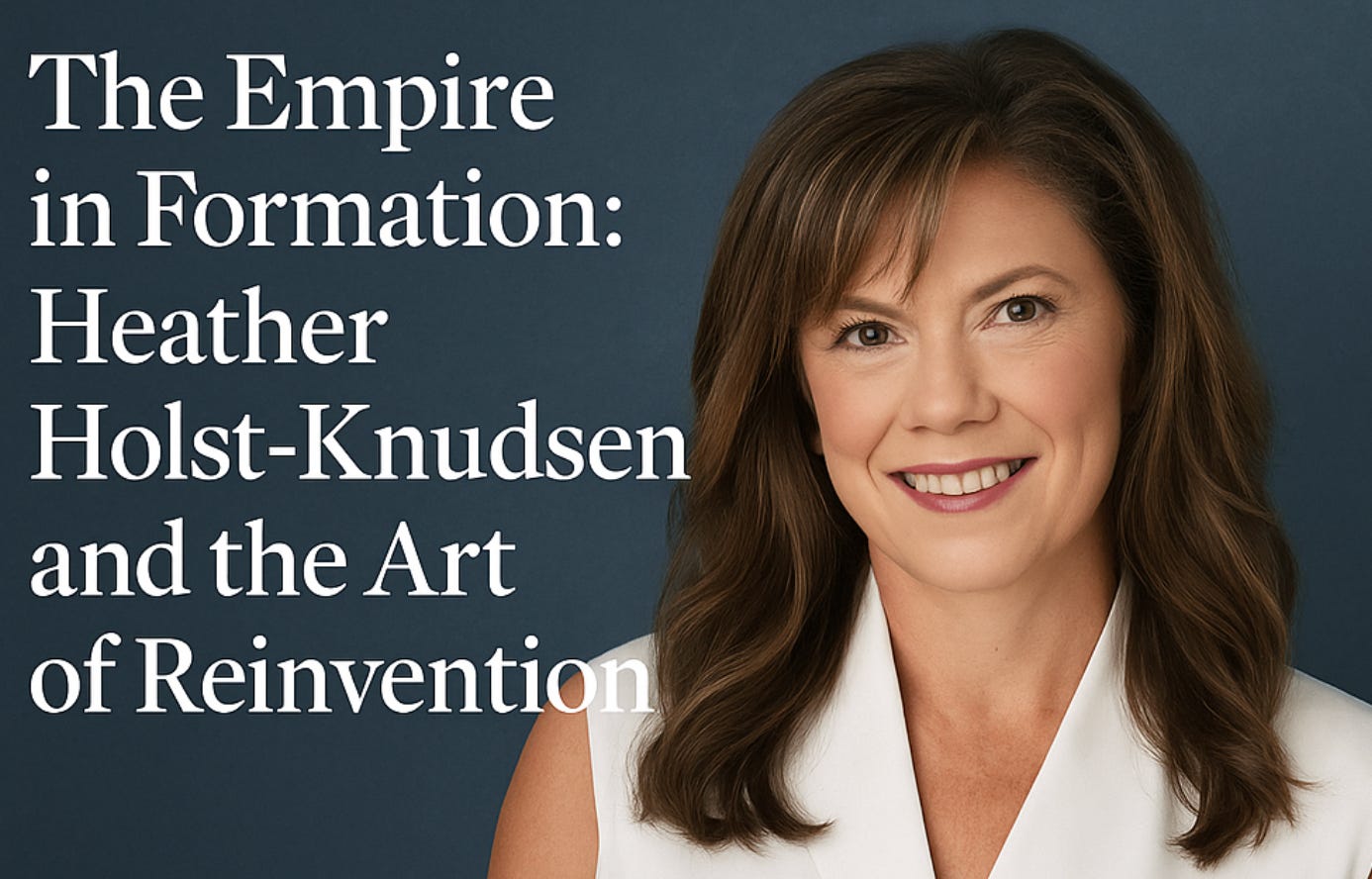An Event Empire in Formation: Heather Holst-Knudsen and the Art of Reinvention
Still in the middle of the build, Heather Holst-Knudsen turns family legacy and fearless gatherings into a real-time lesson in what it takes to start again.
Most business stories are told backward. The company sells, the IPO happens, the founder becomes myth. Heather Holst-Knudsen’s story is still being written—in the noise, the motion, the exhaustion—where most entrepreneurs actually live. Her days are an alternating current of vision and logistics, ambition and anxiety, the tug between what’s working and …




